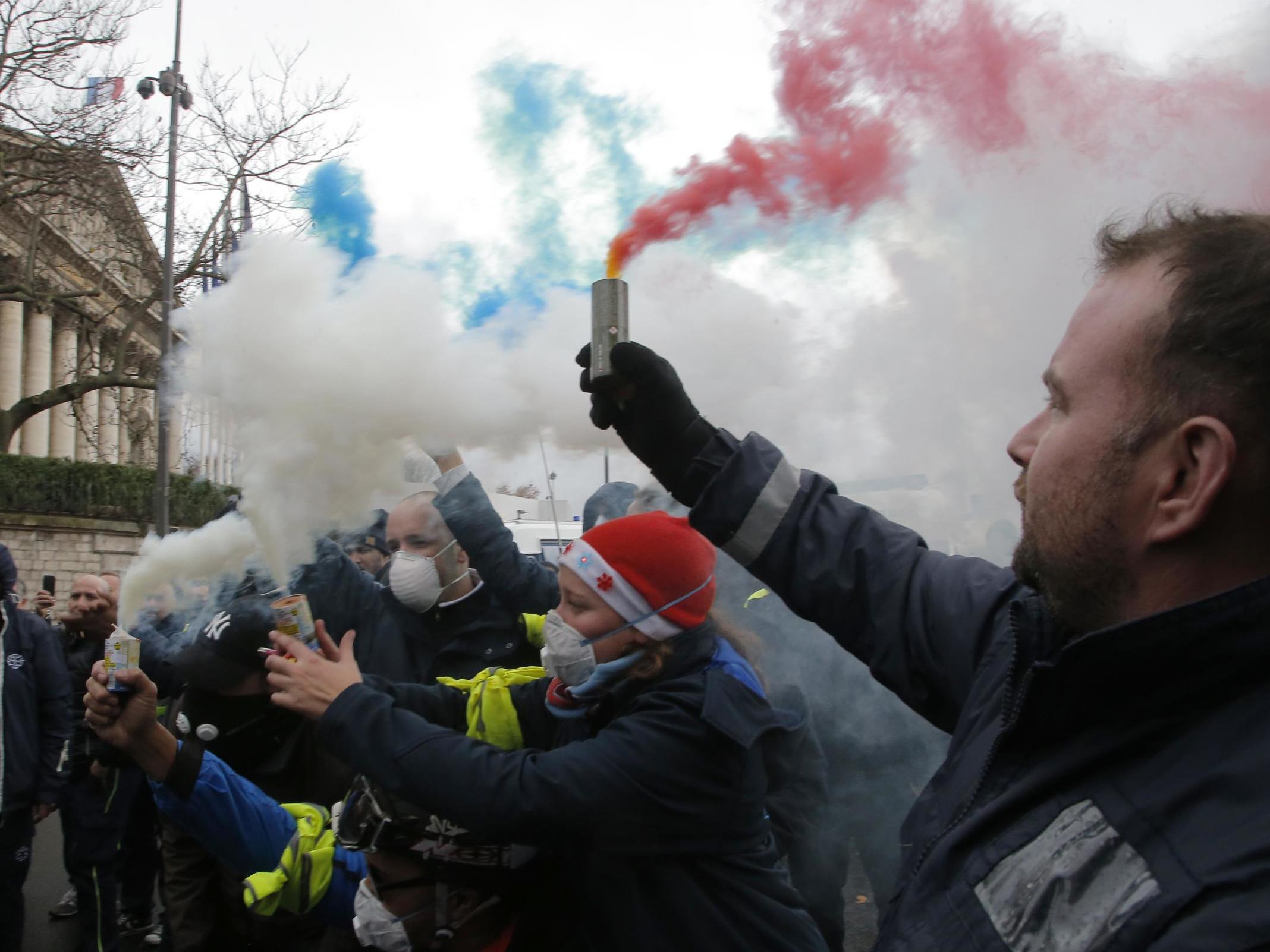French PM Philippe holds crisis talks with political rivals as yellow vest protests continue in Paris
Ambulance workers join anti-government movement

Your support helps us to tell the story
From reproductive rights to climate change to Big Tech, The Independent is on the ground when the story is developing. Whether it's investigating the financials of Elon Musk's pro-Trump PAC or producing our latest documentary, 'The A Word', which shines a light on the American women fighting for reproductive rights, we know how important it is to parse out the facts from the messaging.
At such a critical moment in US history, we need reporters on the ground. Your donation allows us to keep sending journalists to speak to both sides of the story.
The Independent is trusted by Americans across the entire political spectrum. And unlike many other quality news outlets, we choose not to lock Americans out of our reporting and analysis with paywalls. We believe quality journalism should be available to everyone, paid for by those who can afford it.
Your support makes all the difference.Edouard Philippe, France’s prime minister, held crisis talks with opposition party politicians on Monday, after the country was left stunned by anti-government protests and the worst riot seen in France in a generation.
More than 130 people were injured and 412 arrested in Paris on Saturday, as anti-government protests continued across the country.
It was the third straight weekend of protests in the city.
Riot police used water cannons and tear gas to subdue the crowds in the French capital, closing down dozens of underground stations and streets in an effort to contain the chaos.
By Sunday the Arc de Triomphe was tagged with graffiti, shops had been looted and torched cars and broken glass littered popular tourist haunts.
Other protests outside of Paris were largely peaceful.
People in distinctive yellow traffic vests led the outpouring of public anger, which began on 17 November.
Initially the movement was started by motorists upset over a fuel tax hike.
It has since grown to include others disillusioned by Emmanuel Macron’s leadership.
Most of the criticism is underpinned by the complaint the president’s government does not care about ordinary people.
The French leader and his prime minister have both been heavily criticised over their handling of the crisis
Mr Philippe was urged by rival politicians on Monday to reverse some of the centrist government’s policies.
After meeting with the prime minister, Socialist leader Olivier Faure urged Mr Philippe to slash the fuel tax and to restore a wealth tax, which was scrapped by the ruling party.
“We want a change in the method. One needs to come down from Mount Olympus,” Mr Faure said, in a possible reference to “Jupiter”, the nickname given to Mr Macron by his critics.
The president compared himself to the Roman king of the gods in 2016 and has been dogged by the pejorative nickname ever since.
Laurent Wauquiez, head of the centre right Les Republicans party, urged the government to hold a referendum to end the crisis but did not suggest a possible question or topic to put to the people.
“French people need to be heard again, and for that we must organise a referendum to decide these issues,” he said.
Mr Philippe will try to defuse the rising tension by meeting with yellow vest leaders on Tuesday.
Mr Macron, who spent the weekend abroad, returned from the G20 summit on Sunday and immediately chaired an emergency meeting on the crisis.
Members of the National Assembly will also hold talks on the protests later this week.
The French government has not ruled out the possibility of imposing a state of emergency in response to the protests.
The yellow vest protests continued on Monday, as ambulance workers took to the streets to complain about their working conditions.
Protesters set tyres on fire and blocked roads.
One activist held up a sign reading “The State killed me” and others chanted “Macron resign!”
Since the movement erupted last month, three people have been killed and hundreds injured in clashes or accidents stemming from the protests.
Over the past three weeks, protesters have been setting up road blockades across the country and their movement has garnered wide public support.
Additional reporting by agencies
Join our commenting forum
Join thought-provoking conversations, follow other Independent readers and see their replies
Comments